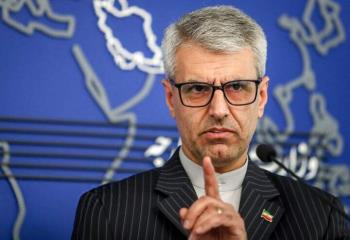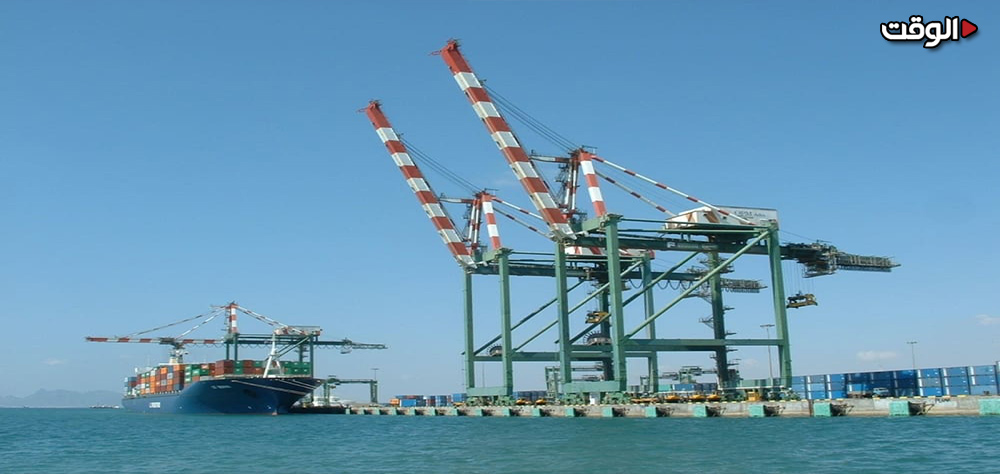Alwaght- Enjoying hundreds of kilometers of sea borders along the Red Sea and the northern Indian Ocean that stretch like a coastal belt from the northwest to the southeast of the country, Yemen has very high potentials in the maritime economy.
The strategic ports of Yemen and very beautiful and uncharted islands give the country a very special position, to an extent that these resources have always attracted the greedy attention of regional and international actors. An example is the relentless efforts of the UAE in recent years to built dominance and take control of these strategic Yemeni resources.
In the latest development, Aidarus al-Zoubaidi, the head of Presidential Leadership Council as de facto government of southern Yemen, in a letter informed his prime minister of his plan to lease Aden Port to UAE's DP World without any tender or even disclosure of the details of the deal, a move that drew protests by many voices in the south.
Mohamad Belfakhr, a Yemeni political analyst, said that "leasing Aden Port is one of the calamities that have befallen the nation. We are looking for investment, but based on the frameworks and laws that exist in all parts of the world."
He added:" It is true that the DP World manages many ports in the world, but it is definitely done within the framework of agreements that protect the sovereignty and rights of the host country. But [under this deal] all of our rights are lost and they destroyed them in any way they wanted."
Suggesting that during the British colonial occupation, this port was the world's third most free port in terms of delivery of goods, Belfakhr added that in 2008 this port was leased to the DP World and later many secret aspects of corruption in this deal were revealed by Aden Press news website.
According to the Yemeni analyst, as a result of the previous deal with the DP World, Yemeni businesspeople in Aden, Taiz and Hadhramout provinces shifted to Oman's Salalah port and transferred their goods from there to Yemen due to high fees and high container transportation expenses from Aden Port. As a result of the deal, the number of containers imported from Aden Port dropped to 146,000 from 800,000 a day.
Belfakhr added that all the oil contacts were inked this corrupt way, without supervision and without responding to any supervisory organs.
It is noteworthy that according to the agreement of 2008, under former dictator Ali Abdullah Saleh, it was decided that 50 percent of the revenue of Al-Mukalla port will be given to Yemen Gulf of Aden Ports Corporation, 20 percent to the Emirati company, and 30 percent to Abdullah Bagshan, a Hadhramouti businessman. Reports claimed that Saleh received millions of dollars in graft for sealing this deal.
In 2011 and after formation of the National Salvation Government, the board of of directors of the Aden Port in August 2012 unilaterally revoked the deal of lease to DP World. Minister of Transformation Waed Badhib, who had a key role in revocation of the deal, survived several assassination attempts in the same year.
But cutting off foreign hands from Yemeni interests under the revolutionary government did not last long, and with the escape of the Abdrabbuh Mansour Hadi and his government to Saudi Arabia and Saudi waging of 2015 war with support of the UAE and the US, Abu Dhabi once again found a chance to execute its colonial plans in Yemen.
Yemen's southern coasts with their ports that rival the Emirati ports have always been a challenge to the UAE rulers. Expanding influence to the southeast, especially towards the borders of Oman, the traditional rival of the UAE, has been a long-standing dream of the ruling Al Nahyan family, and the 2015 invasion provided the ideal opportunity for the Emiratis to realize their dreams in Yemen. In particular, the strategic Aden Port is considered one of the most important seaports in the region, which the UAE considers a competitor and a potential threat to the Dubai Port.
The Emiratis also took control of Al-Mukha port in the west of Taiz province, which is considered as one of the oldest and most important historical ports in the world, but their efforts for several months on the west coast to take over Yemen's other important port in Hudaydah province with a military presence met its failure with the powerful response of the army and popular commitess.
To strengthen its toehold in Aden, the UAE in recent years formed Security Belt Forces in Aden, led by Salafi groups operating directly under Abu Dhabi and controlling exits and entries of Aden.
Concerning the new plan, Salah al-Salghadi, another Yemeni political analyst, believes suggests that "this is not a foreign, regional, or even Houthi plot. This is totally internal, and my biggest fear is that the Southern Transitional Council (STC) is involved in it."
"I hope that the Transitional Council, no matter how close its relationship is with the Emirates and Saudi Arabia, will not engage in such a deal. Ports and sea terminals are not for sale."
Lashing out at the members of the parliament for their unawareness of this important deal, al-Salghadi emphasized that any deal this big should be ratified by the parliament, and the Transitional Council is completely off the parliament.
Pointing out that the forces that control the scene are the same forces that handed over the port of Aden to DP World, al-Salghadi clarified that the STC represents only 10 percent of the government.
Spoiling Yemen's resources
The highly ambiguous deal with DP World is not the only dubious deal of granting Yemen's resources and lands to foreigners by the various forces present in the Aden government. There are other examples of corrupt deals in oil, communication, and other areas in recent years.
With the defeat of the Saudi-Emirati coalition in its war against Ansarullah Movement and Yemeni army, these two former Arab allies competed over expansion of influence and getting more shares from Yemeni natural resource in south of the country, and each of them created and equipped their own version of Aden puppet government. Saudi Arabia formed the so-called Presidential Leadership Council and the UAE formed the STC. These two councils and the groups affiliated with them control the resource-rich provinces and almost all of the main ports and waterways.
In November 2022, Ali Salem Al-Harizi, the head of the Committee for Peaceful Sit-ins in Al-Mahra Province in eastern Yemen, announced the sale of Qishn port by mercenaries affiliated the UAE to Saudi Arabia. He said "one of the mercenaries of the Emirates sold Qishn port to Saudi Arabia and signed a contract, as if this port was his father's property." Reports says that this port will be used to smuggle gypsum out of Yemen.
Also, an investigation conducted by The Cradle magazine in June 2023 revealed major theft of Yemeni oil by the UAE, Saudi Arabia, and even the US. According to the investigation, while Yemen’s oil is liberally being transported overseas, most of the country's own population is barred from accessing their own resources. Reports indicate that Yemen’s oil exports surged from 6.672 million barrels annually in 2016 to 25.441 million in 2021.
According to the same investigation, in March 2023, the Ekad platform released an investigative video detailing the theft of Yemen's oil. The focal point of the investigation was a tanker named ‘Gulf Aetos’ – a vessel named by Ansarallah in multiple documents. The investigation begins with the tanker docking at Khor Fakkan Port in the UAE. On 25 June, the Gulf Aetos set sail from the Emirates and headed toward Bir Ali port in southern Yemen. There, it was loaded with oil before heading to Aden Port, where the oil was unloaded.
For a period of 30 days, the ship repeated the same specific, peculiar routine—loading from Bir Ali port and unloading in Aden port, and finally sailed to Iraq's Khor Al Zubair port, where it was unloaded. According to Ekad’s investigation, the Iraqi port is renowned as the international hub for the redistribution of smuggled oil. The investigation noted that Singapore and the US are among the main destinations of the smuggled oil exported from this port.
The revenue from the smuggled oil is divided between coalition partners Saudi Arabia and the UAE, with the latter holding a larger share. This is due to the UAE's control over 12 Yemeni ports spanning from the east to the west of the country, effectively giving Abu Dhabi control over the export and distribution of oil and gas, reported The Cradle, citing the investigation.



























